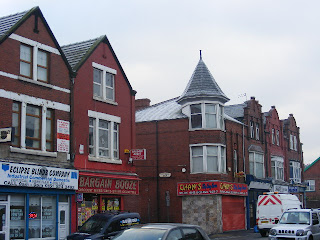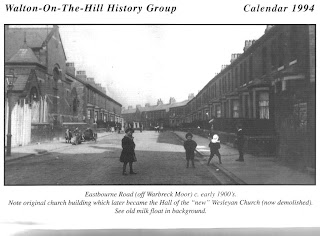 A picture of my mother. The baby is me pondering over the implications of that letter my dad sent me
Courage - Duty - guilt.
A picture of my mother. The baby is me pondering over the implications of that letter my dad sent me
Courage - Duty - guilt.
In later life our dad was crippled by a stroke and spent his last ten years imprisoned in an armchair, unable to speak except in an incoherent mumble only my mum could understand. She cared for him as she’d cared for everyone throughout her life. He was struck down when I was University. When I was home I never helped as much as I should have done. It might have been ‘a man thing’ or the selfishness of someone who for the first time in his life was enjoying the first fruits of independence and wanted to give none of it back. Basically it was selfishness. You learn from it and hope that Karma is more generous.
Regret
It is easy to remember walking into the living room, seeing the battered black armchair close to the fire and, from its back, seeing my dad’s square-ish head. It was neatly combed in the morning but as the day went on it became more unruly; the hair would be in tufts, sticking out from over the top of the chair. Now I would love few things better than to be able to stroke that head, show him some of the affection I wasn’t able to show him when I was young.
Deceit
That kicked in when we hit our teens. We learnt to lie, to evade, obscuring one truth with another more palatable. It is easy to lie when the alternative is a grey life in doors at the time Liverpool was ‘the centre of the universe’ (Alan Ginsberg’s line not mine) The world was exploding, or so it seemed, and we wanted more freedom than our parents were willing to give. A little deceit goes along way.
It also has its downside. When he returned from sea, our dad would bring with him a great box of American comics. He hid them in a cupboard in the front room and every Sunday afternoon would give us one each to read.
The problem arose when we discovered where they were hidden. It was like discovering treasure, a large cardboard box, brimming over with comics. We waited until the house was empty and read them all in an orgy of self indulgence. OK we didn’t know what an orgy was. This was as good as it got for a twelve year old in the late 1950’s. Only orgies, we discovered, had consequences. Our dad continued to dole out the comics on subsequent Sundays, and every Sunday we hid our guilt beneath pretended delight. It was hard at first, but got easier. That’s the problem. Deceit feeds on deceit.
The power of words.
I was a gluttonous reader and collected books like stamps. Sometimes my dad would bring home a book or two from the ship’s library, which was good. The problem lay in reciprocation. He expressed the intention of taking some of ‘my’ books to the ship in exchange. I refused. The books he had in his hand were part of a set I’d been collecting for some time (
For the older geek ‘The Saint’ by Leslie Charteris) Our dad ruled the house with a rod of iron, but ‘property rights’ were ‘property rights’. In frustration he slammed the books down on the table and called me as ‘mean as cat-shit’. I’ve often puzzled over that particular metaphor:
Would dog-shit have meant I was marginally more generous? Or Rabbit shit - its tiny glistening balls, maybe signifying the timidly mean, elephant shit, the carelessly mean. But no, he chose cat-shit, and cat-shit has no qualifiers. There’s nothing good about it. It’s mean.
It was a fair call. I struggle to be generous. It’s peculiar the things you remember, but those words have acted as a spur ever since.
Love
We knew he loved us. It was something we were told. But it was something that was never openly expressed. Part of it was a generational thing, more so with our dad because he was a deeply reserved person. It may also have had something to do with war. In our Grand-dad’s case, the First World War, for our dad, World War 11. There were no post war syndromes or traumas recognised or counselled. Peace came and you got on with it. Problems and memories you dealt with on your own. Husbands sometimes came back as strangers. No one was unaffected.
Our dad had been in the thick of it, he’d been on the convoys, been on the Murmansk run, escaped torpedoes and had come back unscathed. It might have made him more prone to sternness and duty, less tolerant of ‘weakness.’ Looking back I’m more aware of discipline, sometimes fear rather than any great sense of ease.
When I went off to University, he insisted on carrying my suitcase to the bus stop and he shook my hand. That’s the only tactile experience I can remember. I heard afterwards he came home restless and occupied himself by painting a bedroom that didn’t need painting.
Understanding
What I couldn't do as a child - learning to like myself - to the extreme of complacency, Thomas, my son would say derisively.
Hope
That in time Thomas and Frances will remember all my faults but hopefully remember me hugging them. I think, on balance, I’d rather be mocked than feared - or maybe I’m just learning to live with it!















